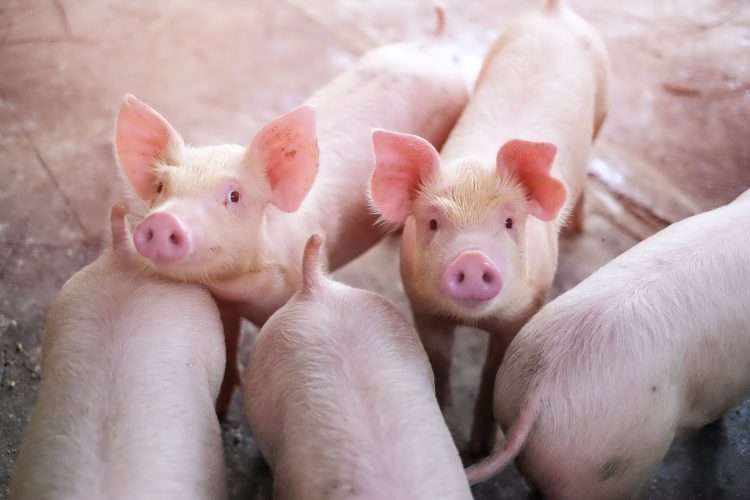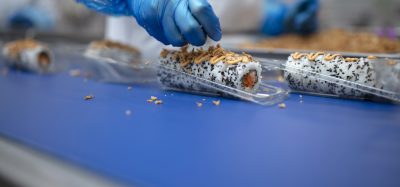FDA approves sale of gene-edited pigs in the US
Posted: 2 May 2025 | Ben Cornwell | No comments yet
FDA approves commercial sale of gene-edited pigs in the US, offering a breakthrough in disease-resistant livestock following UK breakthrough.


In a major breakthrough for global food and farming, the US Food and Drug Administration (FDA) has approved the sale of gene-edited pigs resistant to porcine reproductive and respiratory syndrome (PRRS) in the US, following pioneering research from the UK’s Roslin Institute.
Announced this week, the FDA’s decision marks the first time genetically edited livestock has been cleared for commercial sale in the United States.
The milestone follows years of scientific development and regulatory collaboration involving animal genetics company Genus and researchers at the University of Edinburgh’s Roslin Institute – the same institution that created Dolly the Sheep – with support from Edinburgh Innovations (EI), the university’s commercialisation service.
Professor Bruce Whitelaw, Director of the Roslin Institute, said:
This is a milestone in the use of gene editing in livestock, and a landmark moment for the industry towards managing a global disease that causes devastating losses.”
Susan Bodie, EI’s head of business development at the University of Edinburgh’s College of Medicine and Vet Medicine, added:
This is a very exciting development in translating cutting-edge research into a major solution for the food production industry.
Gene editing – making targeted changes to DNA in a lab – allows scientists to rapidly introduce beneficial traits in plants and animals, which can take decades to achieve through traditional breeding programmes.
EI is proud to support Roslin Institute researchers to work with industry on pioneering world-changing animal bioscience like this.”
What is Porcine Reproductive and Respiratory Syndrome (PRRS)?
PRRS is one of the most economically-damaging endemic diseases in modern pig farming, costing the pig industry an estimated £1.75 billion annually across the US and Europe. Caused by a virus that attacks pigs’ immune systems, it leads to severe respiratory illness in young pigs and reproductive failure in breeding sows.
Highly contagious and difficult to contain, the virus spreads via direct contact and airborne transmission. There is no cure, and existing vaccines offer only limited protection. As a result, farmers often resort to antibiotics to control secondary infections, raising serious concerns around antimicrobial resistance.
To tackle the virus, Roslin scientists used gene-editing tools to remove a tiny section of the CD163 gene, which creates a receptor the virus uses to enter cells. By precisely targeting just the part of the receptor that PRRS binds to – and leaving the rest of the gene intact – the researchers developed pigs fully resistant to the virus, without any negative effects on their health or wellbeing.
Regulatory approvals
Following the FDA’s approval, Genus now aims to secure additional regulatory approvals in key global markets.
While countries such as Brazil, Colombia and the Dominican Republic have already issued favourable rulings for the PRRS-resistant pigs, the company is currently working closely with regulators in countries such as Canada, Mexico, Japan and China, which are critical to the wider commercial roll-out of the gene-edited pigs.
Jorgen Kokke, CEO of Genus, commented:
Approval is a fantastic achievement for Genus PIC and represents a major step towards US commercialisation. We will now continue to pursue regulatory approvals in other international jurisdictions with a focus on key US export markets.”
National Pig Association reaction
In the UK, the National Pig Association (NPA) welcomed the development and urged policymakers to consider its implications for the domestic sector.
NPA chief executive Lizzie Wilson supported the decision:
The NPA is supportive of gene editing technology in pigs, particularly for developing PRRS-resistant breeds and therefore very much welcomes this significant step forward. PRRS is an endemic disease which is extremely damaging and causes substantial economic losses, estimated to be as much as £30 million per year in England alone.”
With the UK’s Precision Breeding Act now in force in England, the approval could set a precedent for the eventual introduction of gene-edited livestock on British farms.
Related topics
Food Safety, Lab techniques, Regulation & Legislation, Research & development, Trade & Economy
Related organisations
Genus PLC, Roslin Institute, University of Edinburgh, US Food and Drug Administration (FDA)









